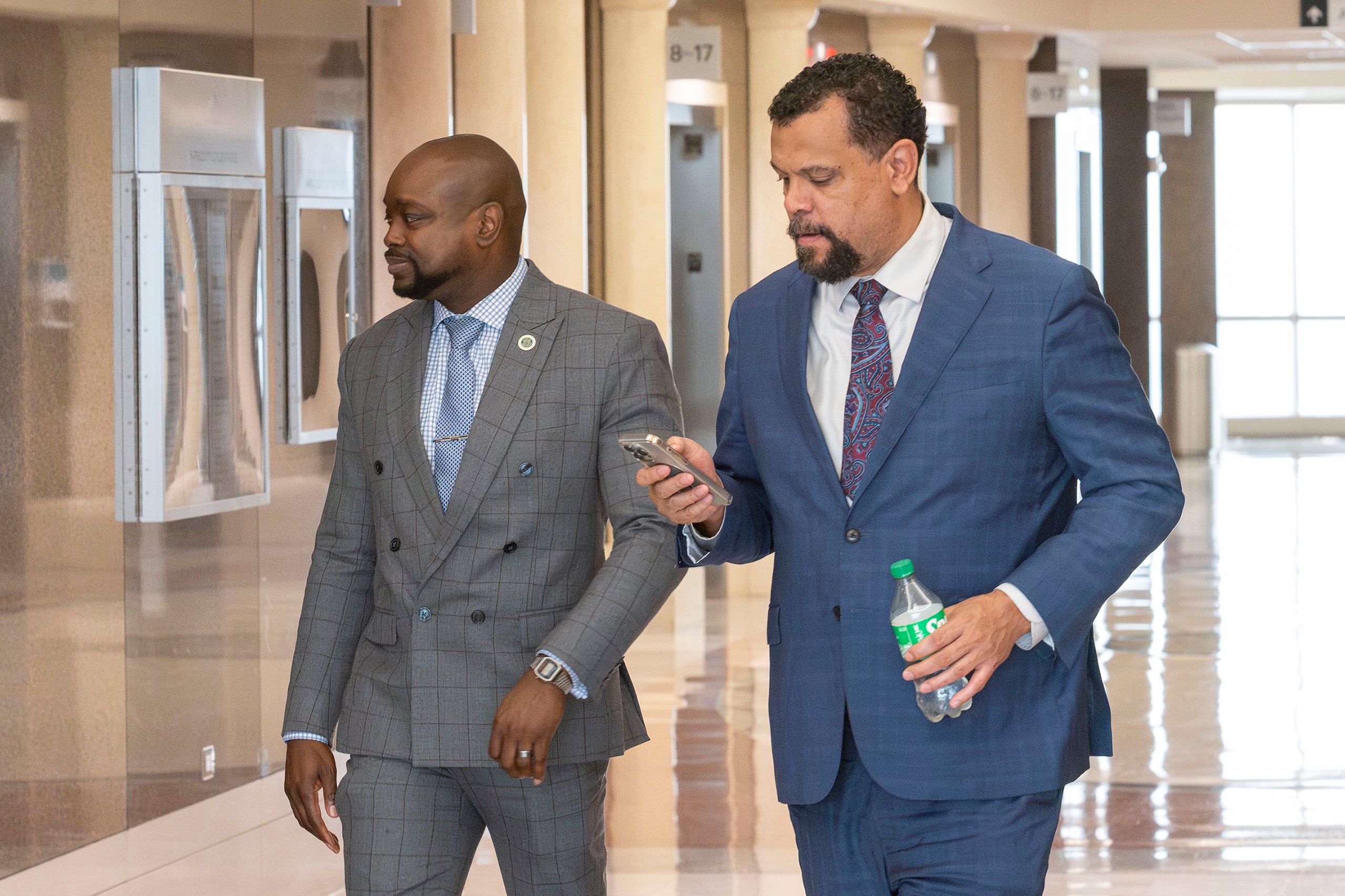This article was co-published with The Texas Tribune, a member-supported, nonpartisan newsroom informing and engaging Texans on state politics and policy.
A day after a fellow judge ruled that he may have incorrectly been named the winner of a 2022 election to Harris County’s 180th District Court, Judge DaSean Jones sat in the courtroom on the 18th floor of a downtown Houston courthouse last week and presided over a trial.
While Judge David Peeples ordered a new election for what was a narrow judicial race, his ruling didn’t strip Jones of his position — and it didn’t undo any of the myriad decisions Jones has made in innumerable cases that have come before him since he took office in January 2023.
That may not stop lawyers from trying to overturn the outcomes of cases over which Jones presided if there is a new election that ousts Jones, according to political observers.
“Nobody seems to know what exactly would happen to those cases,” said Brandon Rottinghaus, a political scientist at the University of Houston. “This is not a test that has a legitimate grounds of an appeal. I think we don’t know what precisely this would look like.”
But any potential challenges would be unprecedented — and likely become a question for the legal system to answer. And Peeples’ ruling was aimed squarely at how Harris County elections counted ballots in the race — not at anything Jones did.
“This is a pretty unprecedented situation, but I would be surprised if it was anything that affected any cases that he tried, as far as them being overturned or anything like that,” said Murray Newman, a defense lawyer who also serves as the president of the Harris County Criminal Lawyers Association.
Jones, a Democrat, beat Republican Tami Pierce by 449 votes. Pierce and several other Republican candidates on the November 2022 ballot contested that and other elections. Peeples upheld the outcomes in 20 contested races — but after a two-day trial in April, found that more than 1,430 votes were cast illegally in Jones’ race against Pierce. Peeples said many were invalid because voters lived outside Harris County, had other residency-related issues, or failed to show a valid identification
Since it wasn’t known who got the majority of those votes — and because the number of those ballots is larger than Jones’ margin over Pierce — Peeples ordered a new election. Jones’ lawyer is appealing that order. Jones will remain on the bench during the appellate process, and the case is expected to eventually make it to the Texas Supreme Court.
Regardless of the outcome, the case has already raised concerns about the cost of holding a new election in Texas’ largest county — and what it could mean for elections across the state.
“This is really more of a political battle more so than a criminal justice battle,” Newman said. “The issue is going to be how we look at elections that are close, and do we really want to set into a precedent where we have this much uncertainty?”
Jones’ lawyer, Oliver Brown, blamed the current election system on the errors that Peeples identified.
“The most troubling part about all of these cases is that our Texas election code places a burden on candidates to defend the ballot box and not the government,” Brown wrote in an email this week. “It is time for the Legislature to revamp the entire election contest process and hold the government responsible for protecting democracy. My client was not responsible for any of the errors alleged in the election process.”
In Harris County, the fight over a judicial seat may be Republicans’ last battleground in a county that has been reliably Democratic for years, said Newman, the defense lawyer.
Republican state lawmakers have targeted Harris County over how officials operate elections since at least 2020, when local leaders expanded voting access during the COVID-19 pandemic.
In 2021, the Republican-controlled Legislature passed sweeping legislation that further restricted the state’s voting process and narrowed local control of elections. In 2023, the lawmakers passed a bill eliminating Harris County’s chief elections official and allowing state officials to intervene and supervise the county’s elections in response to administrative complaints.
For Jones, another potential political wrinkle is a rule that limits judges from running for two seats at the same time, said Rottinghaus, the political scientist. Jones will be on the ballot in November for a seat on the Texas Supreme Court. It is not clear what would happen if the order for a new election for the district court’s judicial seat is upheld and also scheduled for November.
Historically, losers of tight races demanded a recount, which have typically affirmed the outcome, said Mark Jones, a political scientist at Rice University.
If a new election for the Harris judicial seat is ultimately held, scrutinizing which ballots election officials do or don’t count in narrow races could become the new playbook for contesting elections.
“Now this has opened the door to another way to challenge,” Mark Jones said.
Alejandro Serrano is a general assignment reporter for The Texas Tribune.



